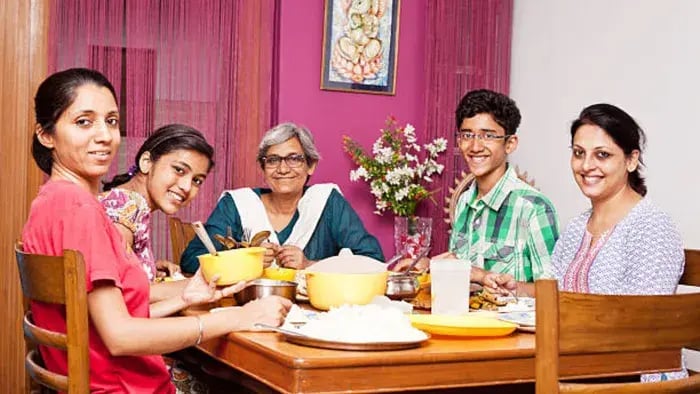- Eat Brain-Friendly Snacks That Boost Energy
- Keep Water Nearby and Actually Drink It
- Use Movement to Reset Your Brain
- Let Natural Light Into Your Study Space
- Switch Up Subjects or Tasks Often
- Keep Your Posture Active, Not Lazy
- Take a Power Nap
Introduction

Staying focused while studying can feel like a battle, especially when your brain wants to focus but your body wants to nap. Often it’s about understanding what your body needs and making a few smart changes to your routine. Instead of reaching for endless cups of tea or scrolling through your phone to “wake up,” there are gentler, more effective ways to stay mentally alert.
What you eat, how you take breaks and even how you sit can quietly impact how awake or sleepy you feel while studying. Some foods energize you without a crash, others slow you down without you realising. Your study environment, light, movement, and posture can work for or against your focus.
Small changes can make a big difference. With the right combination of nutrition and brain-friendly habits, staying awake while studying becomes a lot easier and a lot healthier. It’s not about forcing yourself through sleepiness; it’s about creating the right support system to help your brain stay sharp and engaged naturally.
7 Simple Shifts That Help You Stay Awake While Studying

There’s a big difference between studying while alert and studying while half-asleep. When your mind is tired, even the easiest topics feel like a struggle. But instead of blaming yourself for being lazy or distracted, take a moment to understand what might be causing that fatigue. Often, it’s not just about sleep—it’s about the little things like what you’ve eaten, how you’ve moved, or how long you’ve stared at a screen.
Here are seven easy but effective tips that combine simple nutrition choices with practical mental habits. These strategies help you avoid sluggishness and make your study hours feel lighter, sharper, and more productive.
Eat Brain-Friendly Snacks That Boost Energy
According to a study published in NIH News in Health, if you are feeling sleepy, your brain is not getting the right fuel. Heavy meals or sugar-loaded snacks might give a quick burst of energy, but a crash often follows them. Choose snacks like fruits, nuts, boiled eggs, or yoghurt with honey. These keep your energy stable, which helps your mind stay alert for longer periods.
Keep Water Nearby and Actually Drink It
As per a study published in Treasure Island 2025, dehydration is one of the quiet causes of fatigue. Even if you don’t feel thirsty, your body might be running low on water, which slows down your mental performance. Keep a bottle of water at your study table and take small sips every 20–30 minutes. You can even add a slice of lemon or a few tulsi leaves to make it more refreshing.
Use Movement to Reset Your Brain
A study published in Ann Thorac Med. 2015 states that sitting in the same spot for too long sends signals to your body that it’s time to rest. Every 30 to 45 minutes, get up and move around. Stretch your arms, take a quick walk, or just do a few light jumps or twists. This not only wakes up your muscles, but it also improves blood flow to the brain, helping you stay sharp.
Let Natural Light Into Your Study Space
Research conducted by the Indian J Psychiatry, 2012, shows that a dark or dimly lit room can make your brain think it’s time to wind down, especially during the day. Try to study near a window or in a place with bright, natural light. If that’s not possible, use white or warm lighting instead of dull yellow bulbs. Light affects your energy levels more than you realise, it helps regulate your body clock and keeps your senses alert.
Switch Up Subjects or Tasks Often
A study published in Int J Prev Med. 2013 shows that doing the same type of studying for too long can bore your brain and make you feel drained. If you’ve been reading history for an hour, switch to solving maths problems for a while. Alternating between subjects or even using different ways of studying—like watching a video, drawing a chart, or summarising aloud—can wake up your brain and keep it more involved.
Keep Your Posture Active, Not Lazy
According to the National Health Systems Resource Centre, slouching on the bed or leaning too far back in a chair may seem comfortable, but it tells your body to relax too much, almost like it’s time to sleep. Try to sit with your back straight, feet flat, and elbows resting gently on the table. An upright posture encourages focus. It’s a simple trick, but it signals your brain to stay on task rather than switching off.
Take a Power Nap
Sometimes, the best way to stop feeling sleepy is to sleep. According to a study published in Ind Health. 2013, a short power nap of 15–20 minutes can completely recharge your focus. Make sure you don’t oversleep, though, or you’ll wake up groggier than before. A nap between study sessions, especially in the afternoon, helps your brain rest just enough to be fresh again.
Conclusion

Staying awake and focused doesn’t always require pressure or long hours; it’s about working smarter. When you give your mind the right support, whether through healthy snacks, short breaks, or simply sitting up straight, you create an environment where concentration becomes natural, not forced. The next time you find yourself yawning over your books, try one of these gentle, practical tips, and see how small changes can make a big difference.
Her love for storytelling began with reading her grandfather’s speeches, where Tarishi saw the power of words in creating lasting memories. Combining her passions for food and writing, she has turned her life into a fulfilling path of sharing stories that celebrate flavours and how food brings communities together.
The views expressed are that of the expert alone.
The information provided in this content is for informational purposes only and should not be considered a substitute for professional medical advice, diagnosis, or treatment. Always seek the advice of your physician or another qualified healthcare provider before making any significant changes to your diet, exercise, or medication routines.
References
https://pmc.ncbi.nlm.nih.gov/articles/PMC4202767/
https://pmc.ncbi.nlm.nih.gov/articles/PMC3775162/
https://pmc.ncbi.nlm.nih.gov/articles/PMC3554970/
https://pmc.ncbi.nlm.nih.gov/articles/PMC4518345/
















